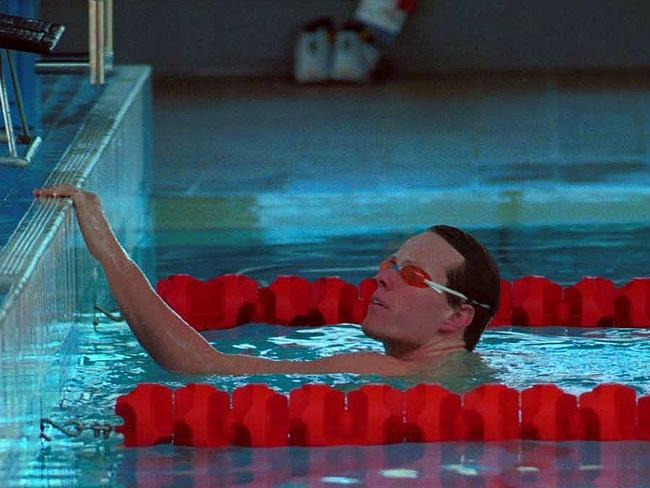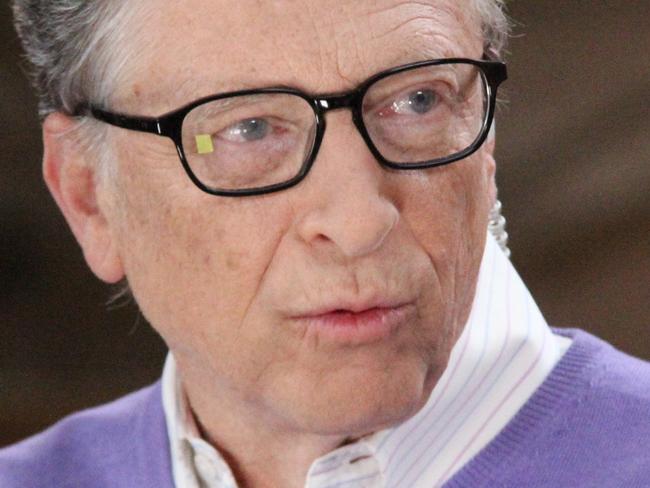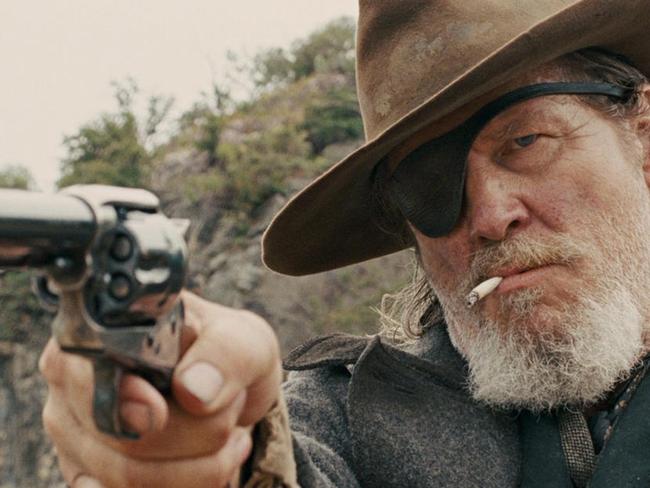What you need to succeed isn’t brains or talent
THE most reliable predictor of success isn’t brains or talent. It’s something some of us are born with but most of us can learn.
Work
Don't miss out on the headlines from Work. Followed categories will be added to My News.
ONCE upon a time, talent and drive were all that were needed to succeed.
But the latest psychological research has discovered a third element of success that is so important, it almost cancels out the others.
It’s called grit, and it’s the latest management buzz word that is transforming what bosses and sports coaches expect from their staff and players.
Performance and wellbeing coach Michelle McQuaid describes grit as passion and perseverance for long term goals, and the ability to stick it out no matter what — whether it be continuing to put in the effort for those tedious, repetitive tasks that move you forward, or picking yourself up after you’ve been knocked to the ground.
It’s a characteristic that enables people to push through even the most crushing episodes of anxiety and self doubt, to achieve against what seem like impossible odds.
And the good news is that, while there is a genetic factor involved — some people are born grittier — it’s also something we can build in ourselves, our teams and our workplace culture.
HOW CAN WE GET IT?
The obsession with grit derives from cutting-edge psychological research being carried out by academics like New York Times best-selling author and University of Pennsylvania Professor Angela Lee Duckworth, who has worked closely with the NFL team the Seahawks.
Prof Duckworth describes grit as “sticking with your future — day in, day out, not just for the week, not just for the month, but for years, and working really hard to make that future a reality”.
And her research shows that grit is the biggest predictor of success, going far beyond intelligence, talent or charisma. So how do we get it?
According to Ms McQuaid, there’s far more to it than simply gritting our teeth and trying to push ourselves forward (that’s called “selfie grit”— more on it later.)
CULTIVATE PASSION
It may sound like a commencement speech cliche, but in order for grit to be possible, we need to be “meaningfully interested” in what we’re doing. But, Ms McQuaid said, the reality is that most of us have no idea where to start.
Instead of waiting “for a bolt of inspiration to strike”, she said it was best to keep in mind that most people found their passion through “a process that develops over time”.
“Think back to teenage years — what was it at that stage that captivated you?” she said, adding that our interests would only lead to bigger things if they were given space, social support and room to grow and develop.
And, she said, “for something to become meaningful, it must move beyond self interest and be applied to how it can benefit others”.
She cited Prof Duckworth’s example of ice cream: no matter how much they love it, most people would not be “meaningfully interested” in their favourite treat.
But if you happen to be one of the brilliant minds behind Messina Gelato, you’re likely to be obsessed with finding the perfect ingredients and flavours.
“We don’t need to be gritty about everything, and trying to be gritty about things you’re not meaningfully interested in, it’s going to be hard to sustain,” Ms McQuaid said.
PRACTICE MAKES PERFECT
This may sound like nothing new, back actually doing it is the essence of grit.
Ms McQuaid cited Harvard Professor K. Anders Ericsson, the author of Peak: Secrets from the New Science of Expertise, whose research showed that high achievers were set apart by “effortful practice”.
“We like to believe that talent is the differentiator, but what Prof Ericsson’s research shows is that talent is simply the promise of what’s possible,” she said.
“It’s the effort that we put in that’s the guarantee for what happens next.”

Prof Ericsson’s study of Olympic class swimmers showed that what gold medal success boiled down to was “a whole lot of very ordinary skills that they practised in a deliberate way — effortful practice, over and over, built towards mastery,” Ms McQuaid said.
“They found in the study that the only thing these athletes did differently was that they practised enough so they could flow the movements together smoothly, in an act of peak performance in a race.”
So being grittier than your opponents can simply mean practising more — even if you are think you have no chance of winning.
That’s what paid off for Australian swimmer Kieren Perkins at the Atlanta Olympics in 1996, when the odds were stacked against him to bring home gold.
After qualifying eighth, most commentators had written Perkins off, with Daniel Kowalski tipped to win the 1500m freestyle event. Perkins was regarded as being too old and not in good enough shape.
“I went into that race knowing I wasn’t good enough and I wasn’t ready enough,” Perkins told the ABC’s Australian Story. “I considered ditching the final and disappearing into obscurity.”
And yet he triumphed, bringing home his second Olympic gold medal.
“It’s not that Kieren was more talented than Daniel,” Ms McQuaid said.
“But he had more hours of deliberate practice, so he was able to capitalise on his physical abilities to push though the doubts and self criticism.”

YOU GOTTA HAVE FAITH
The third essential ingredient of grit, Ms McQuaid said, was the ability to put our hopes in what seems impossible.
Like Michael Edwards from the biopic Eddie the Eagle, who overcame a lacklustre sporting ability, and the taunts of others, to achieve his pie-in-the-sky dream of going to the Olympics.
“One of the biggest challenges of falling down is our definition of success,” Ms McQuaid said.
“If it’s delivering the perfect outcome, then when we fall down, it really hurts. But when our definition of success is the effort I can put in, the learning I can get out of it, having the courage and persistence to get there and give it the best shot — that’s called bring in a growth mindset.”
She said while outcomes were often out of our control, what we could control was “how we show up, and our willingness to keep going until we get the desired result”.

THE SECRET FORMULA
In the United States, Seattle Seahawks coach Pete Carroll has built a team famous for winning games when they’re behind in the last quarter, thanks to his policy of selecting players based on grit.
And it’s paid off. After dramatically overturning the Seahawks’ roster, in 2014 Carroll led the team to its first Super Bowl win in franchise history.
Grit is a mindset that “could be interpreted like a chip on your shoulder”, Carroll said in a recent interview.
“The guys that really have grit, the mindset that they’re always going to succeed, that have something to prove, they’re resilient, they’re not going to let setbacks hold them back, they’re not going to be deterred by challenges and hurdles ... When you have that, you overcome a lot.”
Closer to home, Ms McQuaid consults with an AFL team that has built on the usual metrics — the number of touches, kicks, passes and marks — to take account of grit.
“They said ‘we have no problems getting talented players, but having gritty players, who in the last quarter when we’re down and the chips aren’t with us, are gonna get up and keep playing anyway — that’s what we can’t find’,” she said.
“So players are now also judged on how much effort is being put into different tasks as well, and it’s the two measures combined that determines who goes on the field or not.”

A CAVEAT: UNHEALTHY GRIT
While some grit enthusiasts believe you can never have too much, Ms McQuaid said there were some forms that could be dangerous:
1. Fake grit: Where people are willing to cheat just to get the grit happening.
Long before he was busted in a drug test, cyclist Lance Armstrong was quoted saying: “Two things scare me. The first is getting hurt, but that’s not nearly as scary as the second, which is losing.” We now see where that approach can end up.
2. Stupid grit: Where we stay in a job or relationship too long, persist with something that we knew we should have quit long before we were able to.
“In mountaineering, this is called summit fever, like in the movie Everest — the expedition where eight people died because they were so intent on getting to the top that they didn’t heed the weather conditions.”
To avoid this, she said, it was important to have supportive people around us who could pull us back when we are pushing things too far.
3. Selfie grit: When it’s all about the achievement, rather than the grittiness that goes under it, like the fitness model who only wants the result so they can get praise on social media.
“It’s when we’re doing it for the bragging rights, we’re trying to show ‘look at what I’ve accomplished, look at how amazing I am’ — often there’s that underlying lack of self worth,” Ms McQuaid said.
“Grit actually tends to be characterised by humility. The most gritty people actually aren’t waving it in front of your face, they’re quietly getting on with it.”
Michelle McQuaid shared her insights on how to build grit at a business breakfast hosted by recruitment firm Talent Web on Friday.
Want to know if you’ve got grit? Find out with Prof Angela Duckworth’s 10-question grit scale.
Originally published as What you need to succeed isn’t brains or talent






